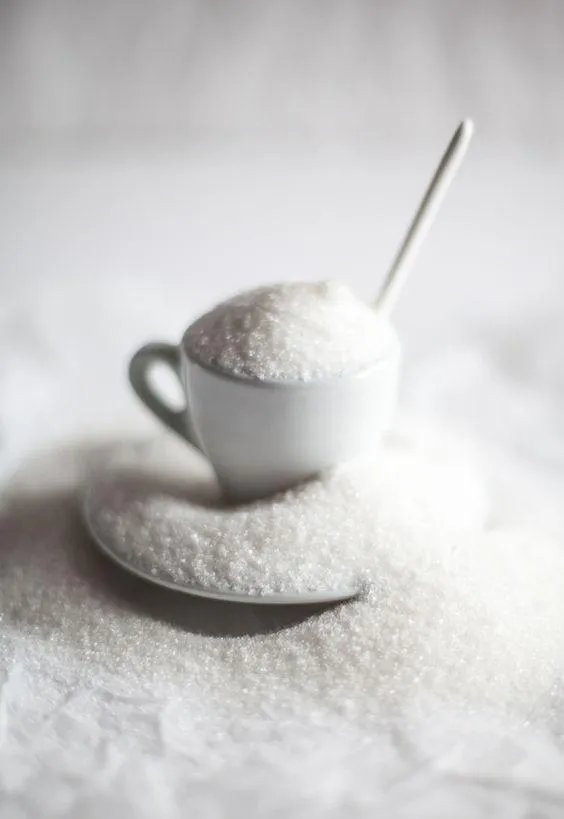
Welcome to my blog!
"A holistic approach to health considers not just the physical body but also the emotional, mental, and social aspects of our lives." - Dr. Andrew Weil
Custom Blogs

How Sugar Hijacks Your Brain
First, Download my guide: "How Sugar Hijacks Your Brain: 5 Easy Steps to Take Control", and take charge of your sugar cravings! Type in your info using this link, and I'll send you my guide instantly.
How Sugar Hijacks Your Brain: The Sweet Truth
Sugar. It's everywhere, lurking in processed foods, hiding in savory sauces, and masquerading as healthy options. But beyond the irresistible taste lies a complex biological process that our brains undergo in response to sugar. Understanding this process is crucial to making informed choices about sugar consumption.
The Sweet Deception: From Taste Buds to Reward System
The journey begins on your tongue. Sweet taste receptors, particularly TAS1R2 and TAS1R3, detect sugar molecules and send signals to the brainstem. This activates the reward system, a network of brain regions including the ventral tegmental area (VTA) and the nucleus accumbens (NAc). The VTA releases dopamine, a neurotransmitter that reinforces pleasurable experiences, making you crave more sugar. This dopamine surge creates satisfaction from that first bite of chocolate.
Beyond Taste: The Gut's Role in Sugar Regulation
The story doesn't end with the taste buds. The gut also plays a role in sugar processing. As sugar enters the digestive system, gut hormones like glucagon-like peptide-1 (GLP-1) are released. GLP-1 promotes feelings of fullness and regulates insulin secretion. This hormone helps your body absorb sugar from the bloodstream into cells for energy. However, excessive sugar intake can disrupt this delicate balance. Studies suggest chronic sugar consumption can lead to GLP-1 resistance, reducing its effectiveness in controlling appetite and blood sugar.
The Dopamine Rollercoaster: How Sugar Hijacks the Brain
While occasional sugar intake triggers a moderate dopamine response, like a balanced meal, frequent consumption makes things interesting. Unlike other rewarding experiences, sugar is readily available and provides a quick dopamine spike. This repeated stimulation can lead to a phenomenon called dopamine dysregulation. The brain adapts by requiring more and more sugar to achieve the same dopamine high, fueling cravings and making it harder to resist sugary treats. This is why you might find yourself reaching for another cookie even though you're no longer hungry.
The Dark Side of Sugar: Potential Health Consequences
The consequences of excessive sugar intake extend beyond weight gain. Research suggests a link between high-sugar diets and increased risk of chronic diseases like obesity, type 2 diabetes, and even heart disease. Studies have also found a correlation between sugar consumption and mood swings, depression, and cognitive decline.
Taking Back Control: Strategies for Smart Sugar Consumption
Understanding the science behind sugar's addictive nature is the first step toward making healthier choices. Here are some practical strategies:
Focus on Whole Foods: Prioritize whole, unprocessed foods like fruits, vegetables, and whole grains. These foods provide sustained energy and essential nutrients, promoting a healthy gut microbiome that can help regulate sugar metabolism.
Read Food Labels: Be mindful of hidden sugars. Pay attention to ingredients like high-fructose corn syrup, sucrose, and dextrose, and choose products with lower sugar content.
Practice Mindful Eating: Slow down and savor your food. This allows your body to register satiety cues from hormones like leptin, preventing overconsumption.
Sweeteners with Moderation: While artificial sweeteners can be a helpful tool for reducing sugar intake, use them in moderation. Some studies suggest they alter gut bacteria composition, potentially impacting overall health.
By making informed choices and adopting mindful eating habits, you can break free from sugar's grip and reclaim control of your health.
Want more? Download my guide: "How Sugar Hijacks Your Brain: 5 Easy Steps to Take Control", and take charge of your sugar cravings! Type in your info using this link, and I'll send you my guide instantly.
References and Further Reading
Freeman CR, Zehra A, Ramirez V, Wiers CE, Volkow ND, Wang GJ. Impact of sugar on the body, brain, and behavior. Front Biosci (Landmark Ed). 2018 Jun 1;23(12):2255-2266. doi: 10.2741/4704. PMID: 29772560.
Roper SD, Chaudhari N. Taste buds: cells, signals and synapses. Nat Rev Neurosci. 2017 Aug;18(8):485-497. doi: 10.1038/nrn.2017.68. Epub 2017 Jun 29. PMID: 28655883; PMCID: PMC5958546.
Hills RD Jr, Pontefract BA, Mishcon HR, Black CA, Sutton SC, Theberge CR. Gut Microbiome: Profound Implications for Diet and Disease. Nutrients. 2019 Jul 16;11(7):1613. doi: 10.3390/nu11071613. PMID: 31315227; PMCID: PMC6682904.
Wise RA. Role of brain dopamine in food reward and reinforcement. Philos Trans R Soc Lond B Biol Sci. 2006 Jul 29;361(1471):1149-58. doi: 10.1098/rstb.2006.1854. PMID: 16874930; PMCID: PMC1642703.
https://www.ramsayhealth.co.uk/blog/lifestyle/is-sugar-more-addictive-than-cocaine
Avena NM, Rada P, Hoebel BG. Evidence for sugar addiction: behavioral and neurochemical effects of intermittent, excessive sugar intake. Neurosci Biobehav Rev. 2008;32(1):20-39. doi: 10.1016/j.neubiorev.2007.04.019. Epub 2007 May 18. PMID: 17617461; PMCID: PMC2235907.
Greenberg D, St Peter JV. Sugars and Sweet Taste: Addictive or Rewarding? Int J Environ Res Public Health. 2021 Sep 17;18(18):9791. doi: 10.3390/ijerph18189791. PMID: 34574716; PMCID: PMC8468293.
Want a FREE Cookbook delivered to your inbox each month?
Click here to Subscribe to get this months Cookbook and many more!
Disclaimer: Never disregard professional medical advice or delay in seeking it because of something you have read on this website. This post is not intended to be medical advice. It is for informational purposes only. If you are pregnant, nursing a baby, or have a chronic medical condition such as diabetes, hypertension or heart disease, be sure to consult your doctor or pharmacist before purchasing or taking any supplement.

